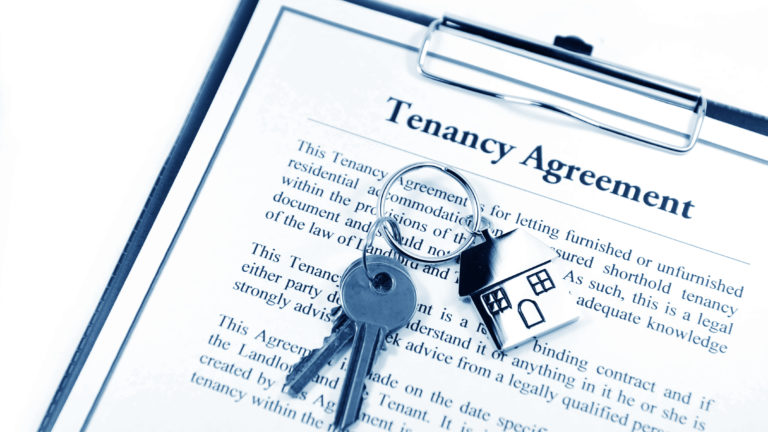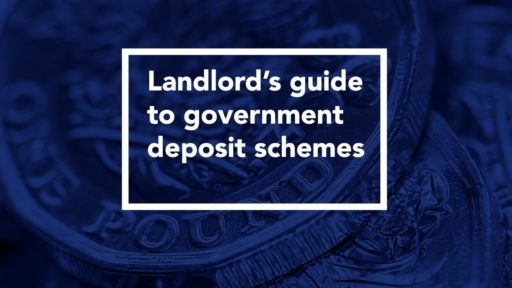Guide to landlord responsibilities

What are the legal responsibilities and obligations of a private landlord?
Whether you’re an experienced landlord or taking your first steps along the property letting road, it’s important to know your legal responsibilities to protect yourself, and your tenant.
Failure to comply with the many separate areas of ever-changing legislation can result in prosecution, hefty fines, and invalidated insurance, so it’s vital to keep up to date with your legal obligations.
In summary, the main landlord responsibilities cover five key areas:
- safety responsibilities, including gas and electricity checks, fire safety, and general hazards;
- landlord repair and maintenance obligations;
- protecting your tenant’s deposit in a government approved scheme;
- checking your tenant’s right to rent;
- giving your tenant the correct documentation.
Covered in more detail in our guide to landlord responsibilities:
Landlord health and safety responsibilities
Provide your tenant with the right documents
Responsibility for repairs and maintenance
Check your tenant’s right to rent
Responsibilities to the tenant
- Protecting a tenant’s personal data (GDPR)
- Tenant Fees Act
- Follow the rules on rent increases
- Duty to give tenants privacy in their home
- Follow the rules on ending a tenancy and eviction
- Responsibilities under the Equality Act
Landlord health and safety responsibilities
Fitness for human habitation
Landlords must ensure the home they rent out is ‘fit for human habitation’ at the start of, and throughout, the tenancy.
The Homes (Fitness for Human Habitation) Act came into force in March 2019, and gives tenants the right to take their landlord to court if the property fails to meet the standards outlined in Section 10 of the Housing Act.
A property could be deemed unfit for human habitation if, for example, it has damp issues, no hot and cold water, or problems with the ventilation, drainage, and lavatories.
To find out more, read our guide to fitness for human habitation.
Is the landlord responsible for pest control?
The responsibility for pest control may be covered in the tenancy agreement but, generally, the landlord will be responsible where an infestation has been caused by a structural flaw in the property; pests were already in the property at the start of the tenancy; or if inadequate precautions have been taken to prevent a known risk of infestation.
Is black mould a landlord’s responsibility?
The responsibility for dealing with black mould very much depends on the cause. The landlord is responsible for mould if it’s caused by leaking pipes, structural defects, or an inherent damp issue. This would usually include mould caused by rising damp and penetrating damp.
But the tenant could be responsible if the mould is caused by condensation because of their lifestyle; for example, if they’ve been drying clothes on radiators and not opening the window. You can find out more here.
Mould can often be caused by an ineffective fan, or the tenant turning the fan off. It is critical that landlords check fans in wet areas (kitchens and bathrooms) to make sure that they are operating correctly.
Is the landlord responsible for dealing with asbestos?
Asbestos used to be commonly found in airing cupboards, above ceilings, behind fuse boxes, for pipe lagging and in Artex ceiling coatings. It is safe unless it becomes disturbed or damaged, which can cause dangerous fibres to be released. If this happens, it is the landlord’s responsibility to have asbestos professionally removed.
Anyone with responsibility for a building that contains asbestos has a ‘duty to manage’ under the Control of Asbestos Regulations 2012.
It is also worth bearing in mind that your mortgage company may require a professional asbestos report to be carried out.
Gas safety
Landlords have a statutory duty under the Gas Safety Regulations 1998 to ensure that all gas appliances, pipe work, boilers and flues are maintained in a safe condition.
An inspection must be carried out every 12 months by a Gas Safe engineer, who will issue form CP12, giving details of exactly what has been inspected, any defects identified and any remedial action taken or required. The CP12 must be available at the commencement of the tenancy.
Landlords can arrange for a gas safety check to be carried out anytime from 10-12 months after the last completed check without affecting the original.
Who is responsible for repairing any defects discovered in the inspection?
Landlords must ensure that any safety defect reported on the CP12 is rectified by a Gas Safe engineer before the appliance is used again.
Is a gas leak a landlord’s responsibility?
Yes, if it has been caused by a defect in the gas supply installation or a structural fault.
Electrical safety
Landlords are required, under The Electrical Equipment (Safety) Regulations 1994 and 2016, to ensure that all electrical appliances supplied with the property are in a safe condition.
The best way to ensure this is to pay a qualified electrician to conduct a PAT (portable appliance test), though this is not a legal requirement.
Since 1st July 2020, landlords in England have also been required to have an Electrical Installation Condition Report (EICR) carried out every five years, under the Electrical Safety Standards in the Private Rented Sector (England) Regulations 2020.
The EICR must be given to existing tenants within 28 days and new tenants at the start of the tenancy, with remedial work required to be completed within 28 days, or any shorter period if specified in the report.
The inspection covers all fixed electrical parts of the property, such as wiring, plug sockets, light fittings and fuse box, as well as permanent fixtures like showers or extractors.
Are landlords responsible for all electrical appliances in the property?
Landlords are only responsible for electrical appliances they provide with the property, typically white goods like fridges and washing machines, and the overall electrical installation.
Tenants are responsible for their own electrical equipment. An inventory signed by both parties at the start of the tenancy makes it clear what equipment you are providing.
Read more on landlord safety certificate requirements.
Fire safety
Landlords have an obligation under the Housing Act 2004 and the Regulatory Reform (Fire Safety) Order 2005 to ensure that the property they provide is fire safe.
Further, under The Smoke and Carbon Monoxide Alarm (England) Regulations 2015, landlords must:
- Fit at least one smoke alarm on each storey of a building used as accommodation;
- Fit a carbon monoxide monitor in any occupied rooms that house a fixed combustion appliance, such as a wood burner or open fire;
- Check that all alarms work before a new tenancy starts;
- Landlords must make sure that smoke and carbon monoxide alarms are repaired or replaced once they have been informed of a fault.
Following the tragic fire at Grenfell Tower in 2017, the Fire Safety Act 2021 was tabled. This regulation applies to any multiple occupancy building (defined as a building with two or more sets of domestic premises) and applies to areas that were originally outside of the scope, including balconies, cladding, windows, external walls, internal doors between premises and places an emphasis on ‘risk-based’ guidance.
Are there rules governing fire safety of any furnishings provided?
Yes, any furniture provided must meet the fire resistant requirements Furniture and Furnishings (Fire) (Safety) Regulations 1988.
Do I need to provide fire extinguishers?
Previously, all Houses in Multiple Occupation (HMOs) were required to have fire extinguishers and fire blankets fitted. This now varies between Local Authorities, with some encouraging them and others banning them. It is critical that landlords check the rules with the Local Authority that the property falls under.
Legionella
The Legionella bacteria, which causes the very nasty Legionnaires’ Disease, typically breeds in air conditioning and heating systems, and water pipes.
Most rental properties carry relatively low risks of Legionella, but landlords are required to carry out a risk assessment under the Control of Substances Hazardous to Health Regulations (2002).
The Health and Safety Executive provides guidance on the steps landlords should take to carry out a risk assessment.
Landlords are not legally required to have a professional inspection carried out, but it is their responsibility to ensure the property has minimal risk of Legionella. The best to ensure this is to carry out an inspection. It should be possible for landlords to do the risk assessment themselves, though a professional report can be undertaken for between £50 and £100.
Provide your tenant with the right documents
Tenant deposit schemes
You must protect any deposit you take from your tenant within 30 days under one of three government-backed deposit protection schemes.
Details of the scheme must be provided to the tenant within 30 days.
The Tenant Fees Act 2019 (England only) limits security deposits to the equivalent of five weeks’ rent (or six weeks’ rent where the total annual rent is £50,000 or above).
In England and Wales, approved scheme providers are:
In Scotland:
And in Northern Ireland:
Read our complete guide to Tenancy Deposit Schemes.
Energy Performance Certificate (EPC)
Landlords are obliged to provide new and prospective tenants with an Energy Performance Certificate (EPC) either at the viewing or before the tenancy agreement is signed.
The EPC measures the energy efficiency of a property and will help renters get an idea of how much they will need to pay to heat the home.
Failure to obtain a “pass grade” of an E will render your property unrentable, and failure to provide an EPC can land you with a fine of up to £5,000 unless an exemption has been applied for.
Certificates are valid for 10 years, but if you make energy-saving improvements to your property in between inspections, such as double glazing or cavity wall insulation, you can apply for a new EPC.
Find an accredited energy assessor in England, Wales or Northern Ireland, or in Scotland. Costs of an EPC start at about £50.
Read our explainer on EPC regulations and find out more about how to improve your EPC rating here.
Tenancy agreement
While a written tenancy agreement is not a legal requirement, you are strongly advised to have one signed by both parties before the tenant moves in.
If there is no written tenancy agreement, landlords are legally required to provide the tenant with written details of the main terms of the tenancy within six months (or within 28 days of a request by the tenant at any other time).
Why do you need a tenancy agreement?
- It allows you to specify any conditions you want to impose, such as ‘no subletting’.
- It sets out clearly who is responsible for what repairs, and the rights and responsibilities of both parties.
- Written agreements signed by the tenant and the landlord are legally binding, protecting both parties.
- If you need to evict your tenant under an accelerated eviction, you will need to be able to provide a written tenancy agreement to a court.
- Most landlord insurance policies will require a written tenancy agreement to be in place for the insurance policy to be valid.
Landlords must be aware that any dispute with a tenant will likely fail if there is no written tenancy agreement in place.
Provide an inventory
Again, an inventory is not a legal requirement, but it’s vital to keep track of the condition of your property and can help to avoid disputes with tenants during, and at the end of, the tenancy.
The inventory, which should be signed by you and the tenant when they move in, provides a snapshot of the condition of the building itself, along with its fixtures, fittings, furnishings, and appliances, along with a schedule of everything you have provided.
Read our essential guide to property inventories.
Any dispute with a tenant in relation to the contents of the property will likely fail if there isn’t a written, and mutually agreed, inventory.
What are the benefits of providing an inventory?
An inventory, with photographs, provides safeguards for you and the tenant should there be a dispute about damage during or at the end of the tenancy.
Does a landlord have to provide wheelie bins?
Yes, landlords are responsible for providing adequate provision for waste disposal.
How to Rent guide
Landlords in England must give their tenant a physical or emailed copy of the current How to Rent checklist.
In Scotland, you must provide a copy of the Tenant Information Pack, while in Northern Ireland a rent book must be provided that contains certain information found in the statutory rules.
Responsibility for repairs and maintenance
Landlords have a statutory duty under Section 11 of the Landlord and Tenant Act 1985 to repair and maintain:
- The structure and exterior of the property, including walls, roof, drains, pipes, and gutters;
- The electrical wiring and circuits;
- The supply of gas and any appliances provided;
- The supply of water, heating and sanitation;
- Basins, sinks, baths etc;
- Internal structures like stairs and bannisters;
- Chimneys and ventilation.
Read our guide on the responsibility for fixtures and fittings.
As mentioned previously, you also have a duty to ensure the property is fit for human habitation throughout the life of the tenancy.
Landlords have a right to access the property to make repairs, subject to a minimum 24-hour notice period (notwithstanding emergencies). However, tenants always have a right to refuse access to the property, in which case, currently, a landlord would require a court order to force access.
Who is responsible for maintaining the garden?
Depending on the wording of the tenancy agreement, the tenant normally has an obligation to keep the property in a good condition, and this applies to general maintenance of the garden and outdoor areas.
Where the property is an HMO, the landlord will generally be responsible for garden maintenance.
Who is responsible for repairing domestic appliances?
If the landlord has provided white goods like fridges or washing machines, they are likely to be responsible for repairing or replacing them unless otherwise stated in the tenancy agreement.
Is the landlord or tenant responsible for painting and decorating?
It depends on the terms of the tenancy agreement, which may allow the tenant to paint the interior to suit their tastes. It may be worth letting a tenant decorate the home, with agreement on the type of paint and colours chosen, as it shows they are keen to take care of the property. The landlord is likely to be responsible for repairing damaged or peeling paint.
Check your tenant’s right to rent
Under the Immigration Act 2014, landlords in England are legally bound to check that all prospective tenants over 18 have the right to be in the UK before renting a property to them.
You will need to check immigration documents and keep copies of them and check again if there is a time limit on their right to remain in the UK.
You can now check a tenant’s right to rent online if your tenant:
- has a biometric residence card or permit;
- has settled or pre-settled status;
- applied for a visa and used the ‘UK Immigration: ID Check’ app to scan their identity document on their phone.
You don’t have to carry out these checks in Scotland, Wales or Northern Ireland.
Read more about the right to rent checks.
Landlord’s personal admin
Licensing regulations
Depending on where you live in England, you may be required to obtain a property licence from your local council under provisions set out in sections 79, 80 and 81 of the Housing Act 2004.
Failure to register can result in fines of up to £20,000 in areas that are subject to licensing.
Each council operating ‘a discretionary licensing’ scheme has its own criteria for landlords to meet before they will be granted a licence. You will need to check with your local council if they are part of the scheme.
In Scotland, Wales and Northern Ireland, there are mandatory registration schemes for landlords.
Landlords in Scotland must apply for registration with their local authority, while those in Wales must register with Rent Smart Wales.
By law, all private landlords in Northern Ireland must register with the Landlord Registration Scheme, which provides education and support to landlords.
Read more: Rent Smart Wales – FAQs for Landlords
Do you need a licence for a House of Multiple Occupancy (HMO)?
If your property meets the following requirements it’s classed as a ‘large HMO’ and must be licensed:
- Rented to five or more people from more than one household;
- Some or all tenants share communal facilities, such as the kitchen and bathroom.
Is it worth joining a landlord association?
Yes, it’s well worth joining a landlord association, which provides a supportive network of peers and a host of benefits to their members.
More on joining a landlord association.
Consent to let
Before renting out a property, landlords must get consent from:
- All joint owners;
- Any adult who lives in the property with occupancy rights;
- Their housing association, if applicable.
Depending on the lease, consent may be required from the freeholder.
To ensure all terms and conditions are observed, it is also strongly advisable to inform:
- The mortgage lender;
- The insurance provider.
What are the implications of failing to gain consent to rent from my insurer?
If you fail to inform your insurer, you will be in breach of contract and may be left without cover in the event of a claim.
Landlord insurance
You will need specialist landlord insurance when renting out a property as a standard home insurance policy will not provide the cover you need. Policies can include:
- Non payment of rent;
- Damage to property by the tenant;
- Loss of rent if your tenant has to move out because of an insured event;
- Property owners’ liability;
- Emergency overnight accommodation for your tenant.
Are there insurance implications for failing to meet landlord legal requirements?
Most, if not all, landlord policies stipulate that you must meet your legal requirements as a landlord, including national and local legislation. Legal expenses and rent guarantee claims could be delayed significantly, or declined, if you have not met your requirements.
Always keep evidence of adherence to applicable legislation, plus any relevant communication with the tenant(s).
Referencing / guarantors
It is strongly advisable to reference all tenants, and if they require a Guarantor, ensure the Guarantor is also referenced.
We recommend the use of an application form to capture all necessary information about the (prospective) tenants, including their National Insurance number.
Paying tax on rental income
Like any other income, you will need to pay tax on rental income made from your rental property.
This will either take the form of completing an annual income tax self-assessment for private individuals or filing a corporation tax return if you are operating as a limited company.
Read our landlord tax guide for more information.
Responsibilities to the tenant
Protecting a tenant’s personal data (GDPR)
The General Data Protection Regulations (GDPR), introduced in 2018, apply to all landlords, who are classified as ‘data controllers’ in law.
You have a responsibility to handle your tenants’ data – their personal information – in an appropriate and lawful manner.
What does GDPR mean to a landlord?
All documents used to collect data, like tenancy agreements, application forms etc, must have a privacy policy covering:
- What personal information is collected and why it’s needed;
- How this information is used and who it might be shared with;
- How long their personal information is retained.
This information should be available to tenants on a privacy statement.
Tenant Fees Act
The Tenant Fees Act 2019, which applies only in England, sets out a list of permitted fees you can charge your tenant.
You are liable for a penalty of at least £5,000 if you charge anything other than, or breach the terms of, these fees:
- rent;
- a deposit capped at five weeks’ rent, or six weeks if the rent is above £50,000 per year;
- a holding deposit capped at one week’s rent;
- payments for utilities and other bills set out in the tenancy agreement;
- up to £50 for changes to the tenancy requested by the tenant;
- default fees for late payment of rent or lost keys;
- costs associated with the early termination of the tenancy if requested by the tenant.
Can a landlord charge for end of tenancy cleaning services?
No, charging for professional end of tenancy cleaning services is now banned for all tenancies, irrespective of when the tenancy started.
Follow the rules on rent increases
There are rules on rent increases, governing when, by how much, and how you go about proposing them.
The rules vary depending on the type of rental agreement, but in general:
- You must obtain permission from the tenant if you want to increase the rent by more than previously agreed;
- The rent increase must be fair and realistic, and in line with average local rents for similar properties.
It is advisable to use a Section 13 notice (form 4) to increase the rent.
Can a landlord increase the rent during a fixed period tenancy?
You can only increase the rent during a fixed period tenancy, such as an assured shorthold tenancy (AST) running for six months, if the tenant agrees. Otherwise, it can only be done at the end of the fixed period. It also important to know how much notice you need to give to increase rent.
Duty to give tenants privacy in their home
As a landlord, you cannot simply let yourself into your tenant’s home without permission.
The tenant has a statutory right to live in quiet enjoyment of their home, and entering without permission could be classed as trespass, except in an emergency.
How do I carry out inspections of the property?
Landlords have a right to inspect the property at an agreed frequency and at a time convenient to the tenant. Tenants must be given 24 hours written notice prior to an inspection, but even then they can refuse access.
Follow the rules on ending a tenancy and eviction
It’s a criminal offence to force a tenant out of a property without following the correct procedures, known as an illegal eviction.
You will need to serve a notice, the type of which will depend on why you’re evicting your tenant and where you are in the UK.
In England and Wales, a Section 21 notice can be served two months prior to the end of an initial fixed-term AST. Initially, you will need to complete form 6a.
A Section 8 notice can be served if your tenants are not fulfilling their duties, such as if they are behind on the rent or have damaged the property. In this case, form 3 must be completed, noting the grounds for eviction.
The method of ending a tenancy in Scotland will depend on the type of tenancy, while in Northern Ireland you must serve a Notice to Quit, specifying the date they should leave (which will depend on how long they have lived in the property).
Read our guide to evicting a tenant for more information.
Once the tenant has left is it advisable to ask them to sign a Surrender Document to ensure that it is recorded that they left the property voluntarily.
Responsibilities under the Equality Act
The Equality Act 2010, which only applies to England, places a duty on landlords to make reasonable adjustments to a policy or practice, and provide extra aids or services, if they disadvantage tenants with disabilities.
The Act prohibits discrimination, harassment, and victimisation of anyone based on their:
- disability;
- race;
- religion or belief;
- pregnancy or maternity;
- gender, gender reassignment, or sexual orientation.
What is a reasonable adjustment under the Equality Act?
Examples of reasonable adjustments to the property include:
- Providing a non-permanent ramp where there are steps to allow a wheelchair user access to the property;
- Providing accessible door handles and taps;
- Fitting a visual door entry system to replace a doorbell for people with impaired hearing.
Letting Agents
Even if using a letting agent, the owner of the property (normally this is the landlord) remains liable. Therefore, it is important to check that the agent:
- Has appropriate client money protection;
- Belongs to a property redress scheme.
Read more: Guide to landlord risks | The cost of being a landlord
Further advice from Alan Boswell Group
Alan Boswell Group is one of the country’s leading providers of award-winning landlord insurance products.
We’ve built up a large knowledge bank of useful information to help you whether you’re just starting out or you’re a seasoned property professional.
Check out the articles on our landlord advice hub.
Legislation and guidance included in this article is correct as of May 2022. Please note that legislation does change, it is always best to check the most up to date guidance on gov.uk. Most landlord insurance policies arranged by Alan Boswell Group also have access to a legal advice helpline where policyholders can seek further advice.







